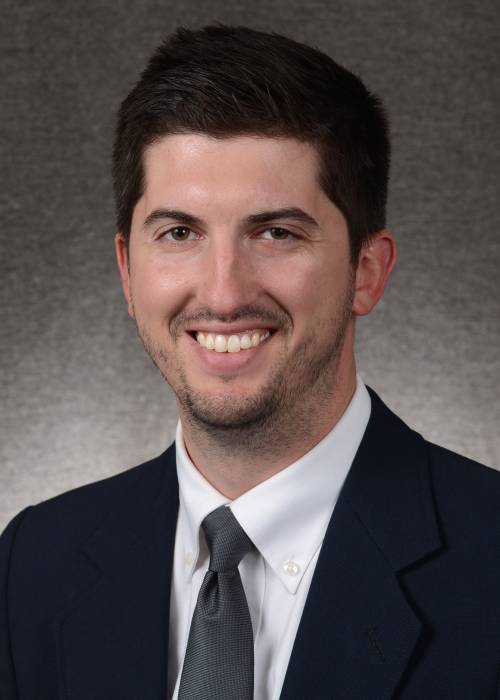Kline brings new vision to mobility study of individuals with lower-limb amputations
 Growing up in a rural North Carolina community that attracted a lot of retirees, Paul Kline saw his neighbors every day struggle with mobility issues. “I joked that’s how I became interested in physical therapy, because I saw firsthand the challenges my neighbors were dealing with as they got older,” Kline says.
Growing up in a rural North Carolina community that attracted a lot of retirees, Paul Kline saw his neighbors every day struggle with mobility issues. “I joked that’s how I became interested in physical therapy, because I saw firsthand the challenges my neighbors were dealing with as they got older,” Kline says.
But Kline, D.P.T., Ph.D., who joined VCU as an assistant professor earlier this year, didn’t realize at the time that his path wouldn’t keep him in the physical therapy clinic. After completing his undergraduate degree at Furman University, Kline pursued his physical therapy training at East Carolina University, where he discovered his true calling: clinical research.
“One of my professors, Blaise Williams, really took me under his wing and helped me understand how to not only conduct research, but how to think about building a career in science,” Kline said.
That mentorship led Kline to pursue a Ph.D. at the University of Kentucky, where he honed his skills in movement analysis and clinical research. During a postdoctoral fellowship at the University of Colorado, he focused on evaluating PT interventions in large-scale clinical trials for patients with total knee replacements and lower-limb amputations.
As it turns out, Kline also paralleled his mentor’s career path. Williams, Ph.D., too once served on the faculty here, overseeing the VCU RUN LAB for five years in the mid-2010s before joining the Nike Sport Research Lab.
Using skills first developed while studying with Williams, now Kline is leading a VCU study on the unique challenges faced by individuals with lower-limb amputations. “A lot of the work I’ve done in the past has been around trying to make gait more symmetrical after amputation,” said Kline, who previously served on the High Point University faculty. “But in talking to participants, I realized we’re missing something: the cognitive and visual aspects of mobility.”
Kline’s project uses eye-tracking technology to understand how people with amputations visually navigate their environment while walking. By having participants perform various tasks, such as solving visual puzzles or subtracting repeatedly from a larger number, Kline is identifying the strategies they use and how those impact real-world mobility.
“There’s often a disconnect between what we measure in the clinic and how people actually perform in their daily lives,” Kline said. “By studying visual attention and cognitive load, we hope to identify the factors that are truly predictive of successful mobility and independence for this population.”
The project is funded through the VCU Quest programs. These grants support new, emerging or continuing research, with a particular interest in proposals with the potential to advance multidisciplinary research or translate to practice or market.
Beyond the Quest project, Kline’s research profile includes chronic musculoskeletal conditions affecting the lower limbs, including arthritis, osteoporosis and diabetes-related foot issues. “The common thread is really about understanding how we can help people maintain their mobility and independence, even in the face of these challenging conditions,” he said.
As a new faculty member, Kline is excited to leverage the university’s strengths in both academic medicine and research to advance his work. “VCU is uniquely positioned to provide the resources and patient population I need to really make an impact,” he said. “I’m thrilled to be part of a department with such a rich history and a commitment to innovation in physical therapy.”